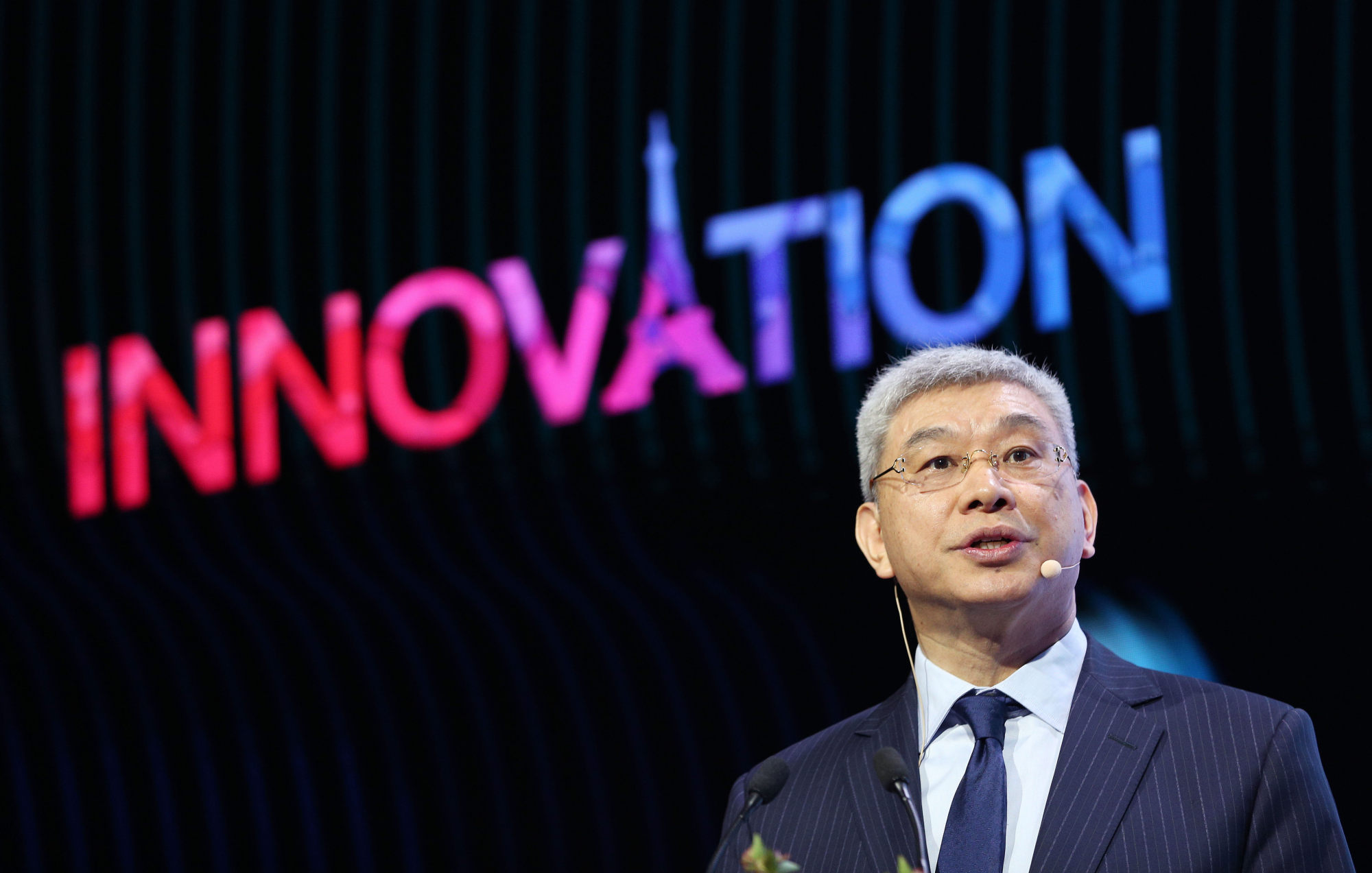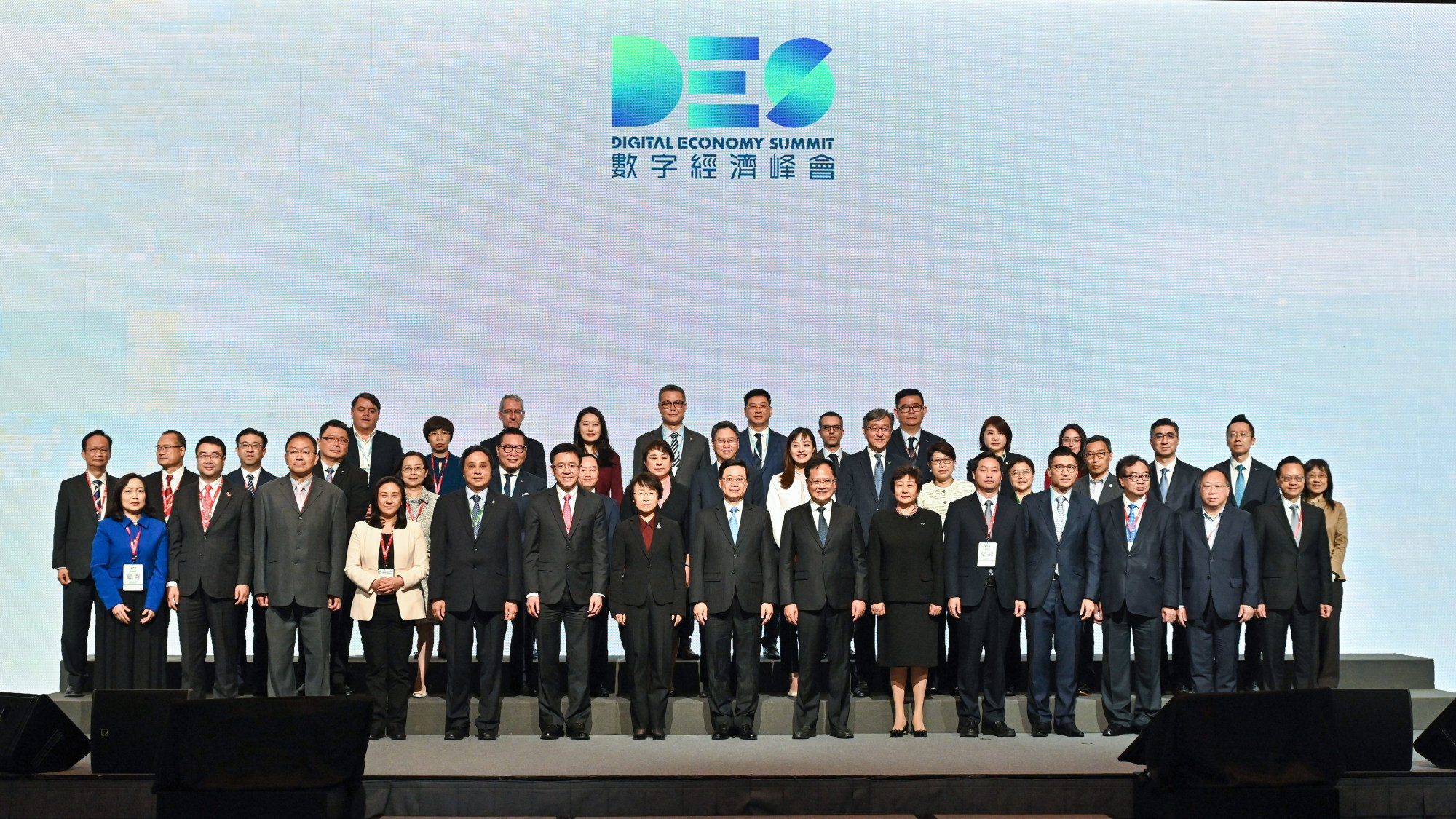Hong Kong needs to step up the development of its cloud computing and artificial intelligence (AI) infrastructure to become a leading innovation and technology hub, according to a key Huawei Technologies executive.
The city can build on its advantages as an international financial centre and having world leading research institutes, but it also faces challenges like a shortage of technological talent and lack of adequate investment in research and development (R&D), according to William Xu Wenwei, the chair of the scientist advisory committee at Huawei.

“Digital infrastructure, such as cloud AI computing, is the scientific research foundation for building Hong Kong into a technological innovation hub in the future,” said Xu in his keynote speech at the Digital Economy Summit organised by the government and the Cyberport hi-tech hub on Thursday.
“Building Hong Kong into a global technological innovation hub requires the combination of industry, education, research and application. Building a long-term ecosystem of technological innovation in Hong Kong requires emphasising foundational research, synergising industrial innovation and accelerating the construction of infrastructure.”

In the city’s annual budget in February, Financial Secretary Paul Chan Mo-po stressed the importance of innovation and technology for the economy, setting aside HK$10 billion (US$1.27 billion) to drive the sector’s development.
This includes HK$6 billion in funding to help universities and institutes develop thematic research centres related to life and health technology, HK$3 billion to enhance basic exploration of frontier technology fields such as AI and quantum technology and the development of a digital economy.
Xu said that Hong Kong’s R&D investment was only one-seventh of Shenzhen’s in 2021. Hong Kong also had “relatively few” leading technological players, he added.
“Hong Kong needs to leverage the research advantages of its higher education institutes, take a longer-term perspective and invest heavily in the research of cutting-edge technologies.”
To drive the development of the innovation and technology industry in Hong Kong, greater collaboration is needed between companies and the city’s 16 “state key laboratories” and eight world class universities, said Xu.

The city’s Innovation, Technology and Industry Bureau laid out a policy blueprint in December, aiming to increase the number of innovation and technology professionals based in Hong Kong to at least 100,000 in 2032, more than double the 45,310 at present in the city.
The Hong Kong Science and Technology Parks, the city’s technology incubator, also aims to grow its roster of start-up tenants in target areas such as AI and data science, to as high as 6,000 over the next 10 years.
This was in keeping with the priorities in the blueprint, which in turn followed the Policy Address by Hong Kong’s Chief Executive John Lee Ka-chiu two months earlier and President Xi Jinping’s endorsement of the goal of turning the city into a technology hub.
Source: https://www.scmp.com/




















Add Comment